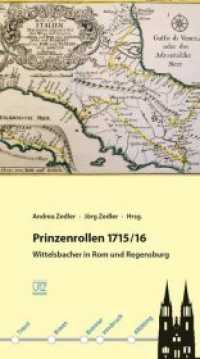- ホーム
- > 洋書
- > ドイツ書
- > Humanities, Arts & Music
- > Philosophy
- > antiquity
Description
(Short description)
In diesem Text fingiert ein Mitglied der von Platon gegründeten Akademie ein Gespräch zwischen Sokrates und dem renommierten Sophisten Hippias aus Elis. Es geht um die Frage, was eigentlich das Schöne ist. Der Autor, der Sokrates und Hippias nicht mehr gekannt hat, war für seinen Text auf Informationen vor allem von Platon angewiesen und gewährt uns Einblick sowohl in die Wirkungsgeschichte Platons als auch in das intellektuelle Leben der Akademie.Das Adjektiv »größer« im Titel des Dialogs bezieht sich auf den Umfang, verglichen mit einem kleineren Dialog desselben Namens. Leben und Unterricht in der von Platon gegründeten Akademie.
(Text)
The adjective "greater" in the title describes the length of the dialogue, compared to the shorter one of the same designation. The unknown author will surely have known both Plato (427-347) and Aristotle (384-322). With this volume he accords us a look at life in the early Academy.In the first half of the dialogue, Socrates and the well-known scholar Hippias from Elis talk about the question of what beauty is. The style is for the most part similar to that found in the early dialogues of Plato. The second half of the dialogue, particularly the remarks concerning distributive and collective characteristics, reflects discussions about problems of interest at that time in the Academy.
(Text)
The adjective greater in the title describes the length of the dialogue, compared to the shorter one of the same designation. The unknown author will surely have known both Plato (427-347) and Aristotle (384-322). With this volume he accords us a look at life in the early Academy.In the first half of the dialogue, Socrates and the well-known scholar Hippias from Elis talk about the question of what beauty is. The style is for the most part similar to that found in the early dialogues of Plato. The second half of the dialogue, particularly the remarks concerning distributive and collective characteristics, reflects discussions about problems of interest at that time in the Academy.
(Author portrait)
Dr. Ernst Heitsch ist em. Professor für Klassische Philologie an der Universität Regensburg.
Dr. Ernst Heitsch ist em. Professor für Klassische Philologie an der Universität Regensburg.








